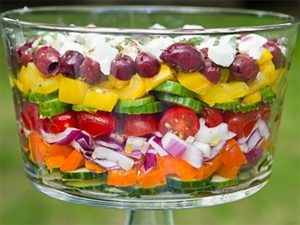Nitrate Debate

The ‘earth is flat’ food battle of our time is being fought and it’s called ‘nitrates are bad for you’. On the one side is the 10 year-old theory that nitrates in food mix with the bacteria in your gut to create nitrosamines which can lead to cancer. The new science refutes that claim and posits that more than 90% of the nitrates consumed come from otherwise healthy plants (leafy greens are a particularly rich source). If the old theory is true, the new science says it means that the very things meant to protect us from cancer are capable of causing it. But that can’t be right. It’s a head scratcher.
Professor Andrew Jones presented his findings at a food science conference about a year ago. This exercise physiologist explained how nitrate from beetroot juice widens blood vessels, reduces blood pressure and allows more blood flow. (It was verified, by the way, by isolating the nitrate in the juice and retesting. The nitrate-free juice did not have the same effect). They are now studying the effects of this isolated nitrate as a’get this’performance-enhancing drug. Well, that’s a game changer. What about the link to cancer?
The problem with science is that it doesn’t jive with human nature. The scientific method poses a theory and tests it. The conclusions must be retested by other scientists to either prove or disprove the findings, but once a theory is entrenched in the human lexicon, it is almost impossible to remove. The layperson just throws up his hands and says ‘First you said this, now you say that?! Forget it. I don’t want to listen anymore’. But we have to keep listening and keep letting the new information in if we are going to move ahead. (Just like any other effective relationship.)
The studies on nitrates and their link to cancer are in that process right now. The story is moving in slow-motion, but the questions being raised make enough sense for us to hit pause and listen. If nitrates exist in soil and plants, then why don’t we all have stomach and colorectal cancer? The epidemiological studies based on self-reported diet history indicating that high levels of processed meat consumption and colon cancer cannot prove cause and effect. (The self reporting alone is a terribly flawed way to assess data. It’s that human confounder again.) Epidemiological studies can only raise enough questions that need to be further investigated.
What heats the whole debate up is the use of said nitrites, and nitrates are in deli meats. And no one wants to listen to the producers of ‘Big Food’; we are certainly not going to get our health news from THEM, but they should get a voice in the conversation too. Know that nitrites, as a preservative, are mandated for use in deli meats. In other words, if you make and sell deli meats in Canada, the government says you must use them in your product to prevent other, more pressing problems like deadly bacteria. They can choose from a synthetic source or from a natural source like the vegetables stated above.
As a follower of the story, you want to find the best course of action. It’s more about what you DO in the meantime that matters. Vitamin C in plants helps to prevent the conversion of nitrates to the risky and suspect nitrosamines. Smoked and cured meats have been consumed for millennia and they taste good, nitrites/nitrates and all. So, if you are going to continue enjoying these meats, do so wisely. Choose the best one you can find that has managed the other factors that such a food comes with. Specifically, find the leanest, lowest sodium option made with the highest quality ingredients you can find. Enjoy it in moderation, and eat it with lots of fresh fruit and vegetables (and keep reading to figure out whether the earth is round or flat…again).












